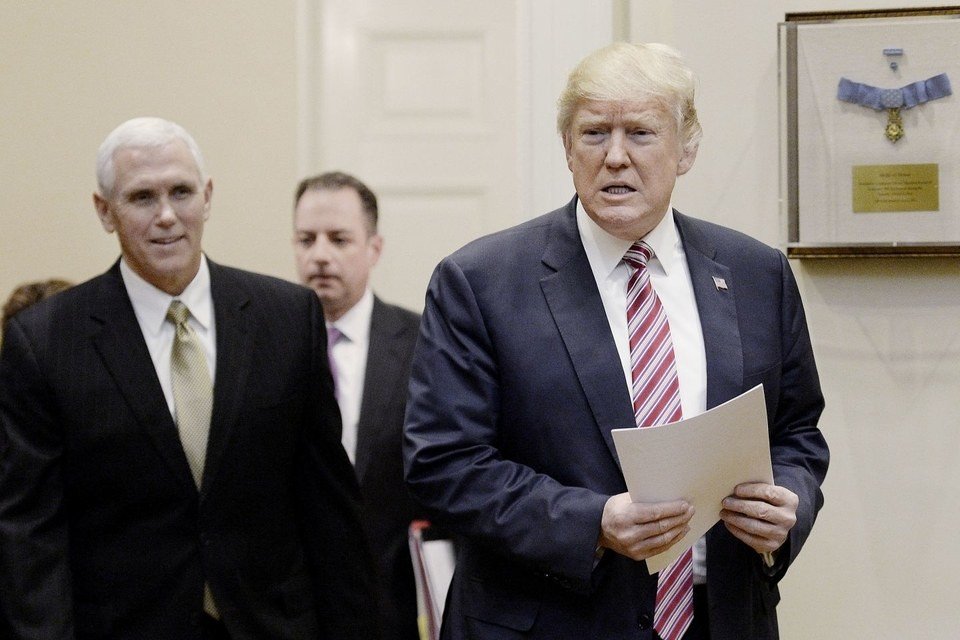MASERU – After-effects of the January 29 reinstatement of the US government’s Mexico City Policy by President Donald Trump are starting to be felt in the Southern African poverty-stricken tiny kingdom of Lesotho.
Under this policy, foreign non-governmental organizations that receive family planning assistance from the US cannot “perform or actively promote abortion as a method of family planning in other nations”.
The policy was enacted in 1984 under the President Ronald Reagan regime, to be revoked in January 1993 by President Bill Clinton upon assumption of office; it was reinstated again eight years later by President George W Bush, and then President Barack Obama rescinded it again in 2009 and reversed by President Trump upon assumption of power.
Trump’s move attracted widespread criticism, with international organisations and media outlets arguing that poor women in Africa will be most affected by funding cuts, with Africa home to two-thirds of the US Agency for International Development’s (USAID) family-planning priority countries.
In Lesotho, the Lesotho Planned Parenthood Association (LPPA) has already received a body blow, one of its projects aimed at reducing unplanned pregnancies, HIV infection and the improvement of maternal and adolescent health has been forced to cease operations.
Launched in March 2016, at an initial two-year budget of M9,000,000 ($690412.68) the LPPA project had to shut down after loss of funding from the US government after Trump reversed the Mexico City Policy.
To undertake the project, the LPPA received an initial funding from the USAID’s Population Services International (PSI) – an affiliate of the International Planned Parenthood Federation (IPPF) that the US government strongly feels is pro-abortion.
Per local laws abortion is illegal, and the LPPA does not offer abortion services, but rather family planning and maternal health services.
The association had stretched the project to cover Lesotho’s two districts of Berea and Maseru, targeting adolescent girls and young women; HIV prevention services such as a ‘Test and Treat’ campaign were also provided in these areas through the same project.
The project’s shutdown was confirmed in an interview with the LPPA Programmes Director, ‘Makatleho Mphana, who said the premature demise of the project was a major blow “not only to the workers but to the country’s health services and the economy as a whole.”
“The project started in April 2016 and was supposed to run for two years and the first year was supposed to be completed by March 15, 2017. The objective of the project was to increase the contraceptive method mix among 17, 385 girls and young mothers in Maseru and 10, 104 in Berea,” Mphana said.
She further said most of these services were provided in seriously hard-to-reach areas that are far from health centers, saving communities energy to travel long distances to service centres.
The status quo has also brought about termination of employment for 23 employees of the LPPA, comprising 20 nurses, two peer-educator coordinators and a driver beginning February 28 – all had been recruited for the duration of the project and are now added to Lesotho’s worrying unemployment rate of 28 percent.
The workers’ termination letters read in part: “The US government has reinstated the Mexico City Policy, which states that no American funding will be used to support any organization that provides or promotes abortion-related services such as IPPF even if the funding will not be used for the same mission.”
“The LPPA, by virtue of being an IPPF member, falls within such organizations that promote Family planning services. As a result, PSI has made a resolution to stop its funding to LPPA effective from February, 2017, as response to this US policy.”
Instead of curbing abortion, Mphana feels the project’s closure is likely to up abortion statistics in Lesotho as the LPPA, through the project, was “…counselling to some extent to ensure that one is aware of the consequences of abortion and we emphasize on family planning services for women in order to avert unplanned pregnancies and abortions.”
“If they don’t get family planning services one can only conclude that women and girls will resort to unsafe abortions and most likely die from being unable to access family planning and HIV services,” said Mphana.
The blow on the ‘Test and Treat’ approach to prevent new HIV infections among the people of Lesotho also means the negative effects will be felt on the country’s capacity to reduce its 25 percent of HIV prevalence and meet Goal 3 of the Sustainable Development Goal that seek to ensure people’s good health and well-being by 2030.
Meanwhile, the LPPA has approached alternative donors to continue with the project and indications are that the Japan Trust Fund may come in to close that gap, but the concept note is still being developed and hopefully will meet the required standard for proposed funding.









